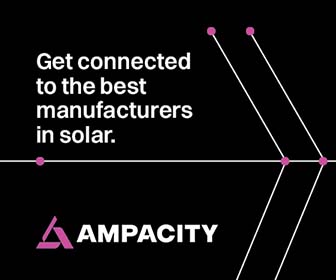Solar Impulse Foundation Launches a "Solutions Guide for Cities" to help Cities Reach Net Zero Goals
Solar Impulse Foundation Launches a "Solutions Guide for Cities" to Help Cities Reach Net Zero Goals
During the Solutions and Cities thematic day at the international climate conference COP27, the Solar Impulse Foundation launched its innovative Solutions Guide for Cities, a compilation of cleantech solutions designed to help urban centres quickly build a robust climate mitigation program. The Guide was officially introduced during the European Commission virtual program for COP27.
Lisbon, Portugal and Montreal, Canada will be two of the first pilot cities for the Guide. Other interested cities include Stockholm, Geneva, and the Paris region (Île-de-France) with more coming.
"As Mayor of Lisbon, I am proud and committed to endorse the Solutions for Cities initiative that the Solar Impulse Foundation is leading," said Mayor Carlos Moedas. "Cities are uniquely placed to provide a sustainable economic model where clean energy serves the needs of our citizens, in particular the most vulnerable. Lisbon is committed to delivering that sustainable approach with new technologies and innovative solutions. To achieve that, I count on the support of the Solar Impulse Foundation and the relentless determination of my friend Bertrand Piccard."
"The partnership we are announcing today will accelerate the deployment of solutions to the environmental challenges faced by cities, and we hope that many of them will use some of the tools developed by the Solar Impulse Foundation. Climate action is at the forefront of Montréal's priorities and as the North American Vice President of C40 I will keep working to move the needle forward both locally and internationally," declared the Mayor of Montréal, Valérie Plante.
"Our foundation has identified more than 1,400 technological solutions that exist today to protect the environment in an economically profitable way, but the world is not moving fast enough to acquire the implementations needed to reach carbon neutrality," said Bertrand Piccard, founder and chairman, Solar Impulse Foundation. "Cities are the primary generators of economic activity and at the same time they are responsible for three-quarters of global carbon emissions. Our Solutions Guide for Cities demonstrates how solutions can be implemented in a profitable way to help speed their decarbonization plans."
Among the solutions vetted and labelled by the Solar Impulse Foundation as both clean and profitable, the Foundation selected a sample of 188 that are effectively solving key challenges for cities' decarbonization and had real life case studies of implementation across more than 130 municipalities and 28 countries.
Solar Impulse-identified solutions for cities include more environmentally friendly building materials such as recycled concrete made of processed mixed granulated demolished rubble, efficient biobased insulation panels, anti-glare and heat managing glass for windows, greywater recycling, vehicle-to-grid, geothermal storage, and geothermal air-water heat pumps, as well as often overlooked but highly effective energy efficiency measures.
Despite the increasing sense of urgency, most cities have not started net zero planning because they lack an analysis of key sectors contributing to their emissions, have no access to the most relevant technologies and solutions, and face difficulties in prioritising their efforts. The Guide addresses these core issues by showing where actions can be taken across the value chains of five main sectors that are closely interlinked with a city's ecosystem: Energy & Power Grid, Construction & Buildings, Mobility & Logistics, Waste Management & Water, and Urban Infrastructure. It details and addresses the myriad "pain points" that city leaders face in managing their ecological transition, including significant adoption roadblocks.
The Guide utilizes a unique bottom-up approach, leveraging cleantech innovators' knowledge of their clients' adoption barriers and highlighting their success stories to inspire climate action.
"We believe the players that are most eager to boost climate solutions adoption are the ones who can make a business out of it," continued Piccard. "Yet we recognise that the solutions and their capabilities are only part of the puzzle. The goal is to modernise the legal framework to create a need to pull the solutions to the market."
To assist in this task the Solar Impulse Foundation invited other organisations, called "systemic enablers," to join the initiative and share their best practices to move from urban vision to solutions adoption. These groups, including the World Wildlife Foundation (WWF), the International Council for Local Environmental Initiatives (ICLEI), and NetZeroCities, among others, have been working on these requirements for many years and will help cities in deploying solutions from the Guide.
Solar Impulse Foundation | https://solarimpulse.com/








.png?r=1955)



